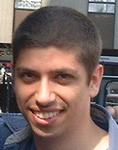Cited By
View all- Kim CLi PMohan AButt ASampson ANigam R(2024)Unifying Static and Dynamic Intermediate Languages for Accelerator GeneratorsProceedings of the ACM on Programming Languages10.1145/36897908:OOPSLA2(2242-2267)Online publication date: 8-Oct-2024
- Xu RLuo JZhang YLin YWang RHuang RLiang Y(2024)Hestia: An Efficient Cross-Level Debugger for High-Level Synthesis2024 57th IEEE/ACM International Symposium on Microarchitecture (MICRO)10.1109/MICRO61859.2024.00062(765-779)Online publication date: 2-Nov-2024
- Leothaud DGorius JRokicki SDerrien S(2024)Efficient Design Space Exploration for Dynamic & Speculative High-Level Synthesis2024 34th International Conference on Field-Programmable Logic and Applications (FPL)10.1109/FPL64840.2024.00024(109-117)Online publication date: 2-Sep-2024
- Show More Cited By





